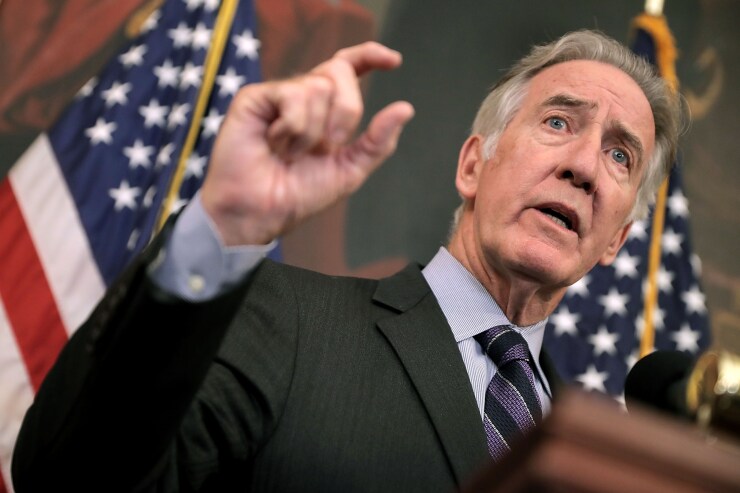A U.S. House committee approved a package of bills that provide tax breaks for a variety of select industries and constituencies, kicking off what’s likely to be a protracted negotiation with Senate Republicans over whether and how to pay for them.
The bills include dozens of breaks for specific industries, including biodiesel producers, wind-energy farmers, and beer and wine distillers. Other bills considered by the Democratic-led House Ways and Means Committee on Thursday would expand tax credits for low-income and middle-income workers, repeal a provision in the 2017 tax law that imposed a levy on fringe benefits for nonprofits, and provide a retroactive tax benefit to same-sex married couples.
The bills now move to the full U.S. House of Representatives. While some of the provisions, especially the industry tax breaks, have bipartisan support, House Democrats thus far have insisted on finding a way to pay for the breaks by raising taxes elsewhere. The provision in the industry tax-extender bill passed Thursday would raise revenue by lowering the exemption for certain estate taxes three years early, something that Republicans oppose.

The low-income worker bill approved Thursday would increase the earned-income tax credit for workers without children and expand the refundability of child tax credits for low-income families, among other changes.
Another bill would increase entitlement funding for child-care programs, while removing a levy imposed by the 2017 tax law on fringe benefits at non-profits, which had become known as the “church parking tax.” A fourth bill allows same-sex couples, who were married under state law, to amend old tax returns to reflect their marriage in years when federal law prohibited it.
While Ways and Means Chairman Richard Neal of Massachusetts insisted that provisions in the industry tax-extenders bill be paid for within the legislation, the other bills did not have such provisions. Neal said he would work to find revenue-raising options on the House floor.
After taking over the House this year, Democrats reinstituted rules that require tax cuts or new spending to be offset by tax increases or budget cuts elsewhere in legislation.
In his opening remarks, Neal cast the package of bills as a correction to widening economic disparity he attributed to the Republican 2017 tax law.
“The wealthiest members of our society are benefiting handsomely from economic growth — but many of the other families find themselves stuck in place or slipping behind,” Neal said.
The vote on the tax-credits bill — and the bipartisan tone of the hearing — was delayed by a partisan argument about illegal immigration, sparked by an amendment by Texas Republican Jodey Arrington that would require recipients of some tax credits to have a Social Security number, which only citizens and certain immigrants have. The amendment failed.
The bill on tax extensions would pay for itself by tweaking a part of the 2017 tax overhaul that increased the value of estates that are exempt from federal taxes. While the estate provisions expire in 2026 under the 2017 law, the new bill would lower the exemption in 2023 instead to raise money. Republicans are unlikely to entertain a significant change to their signature legislative achievement, and some lawmakers have argued that the tax extensions shouldn’t have to pay for themselves.
Republican Kevin Brady of Texas, the senior Republican on the committee, indicated that the bills could face an uphill battle to get approval from his party.
The tax extenders bill was “sprung on Congress sight unseen merely two days ago without any Republican input. This is incredibly discouraging,” Brady, a Texas Republican, said.





